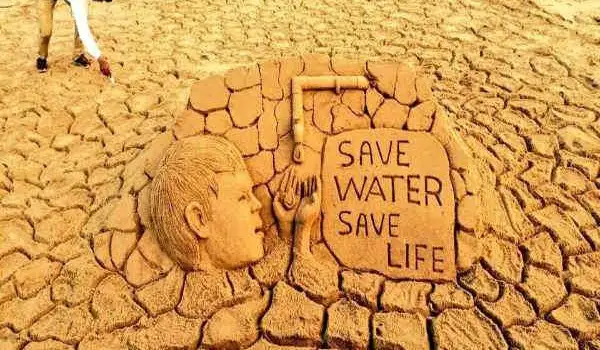Day Zero is one of the worst nightmares for any country, a day when no water is available for its citizens. Cape Town came very close to that horrible nightmare at the beginning of this year, but all is not lost yet. According to reports, the day of crises has been postponed till 2019, and it seems to a huge relief for the locals, but the fact is Cape Town’s water crises is not over yet. Here you can know how the crisis was postponed and what other countries can learn from this situation.
What Would Have Happened if Day Zero was not Postponed?
Thankfully, Day Zero is now postponed to 2019 but if that good news had not come in time, what would have happened. Have you ever thought of that? It is a fact that had this crisis not postponed, the city would have run out of the water by July 9th. There would have been no water available in the taps to all the homes and most of the businesses. About 4 million residents of the city would have suffered from lack of running water.
The residents would have needed to go to about 200 collection points to collect strictly rationed water People would have been allowed only 25 liters of water or just 6.5 gallons in a day. With that water, they would have had to take care of all their basic needs like drinking, bathing, washing hands, flushing toilets, etc.
Will Rain Offer Some Relief?
Winter rains have arrived in the well-known city of South Africa but according to the Department of Environmental Affairs, the region is still in the drought. As per current rainfall statistics, the city can expect a normal year ahead. In May this year, 66 millimeters of rain was measured at the Cape Town International Airport weather station which is slightly higher than the long-term average of 62 millimeters.
The long-term average is 134.1 millimeters while the total rainfall from January is 144.1 millimeters. So, the city has got 10.0 millimeters above average. Experts believe that this is an improvement and the city can expect a normal season. Though it can’t solve the Cape Town water crises completely, it can reduce the stress on the water supply system.
Drop in Water Consumption
The average water consumption of the popular city was recorded at 505 liters per day recently and it has reduced by 20 million liters. Experts also share that the city needs over three years of above-average rainfall if it wants to reduce the water crises.
Need for Keeping Water Consumption in Check
Authorities are asking people to keep down their water consumption because if steps are not followed for water conservation, the Day Zero might be a reality once again. One of the actions taken to reduce water consumption is increasing the water tariff by 27 percent. The pricing is also divided into tiers according to average water usage. For drinking water, the price could be doubled by the authorities, from USD 2.10 to USD 3.20. Though many businesses and resident’s associations are planning to oppose the hike, this hike seems to be a necessary evil.
Major Reasons for Cape Town’s Water Crises
Some of the major reasons for the cape town’s water crises were bad infrastructure planning, climate change and politicking in a contested region. Storage of water was also an issue as the city’s storage solutions were not at par with the rising population. The population was 2.4 million in 2014. It increased to 4.3 million in 2018. In 2009, the Berg River Dam opened that increased storage by just 15 percent. The lack of infrastructure is mainly due to personality politics and politicking. Some experts believe that the city’s 6 dams are enough but managing the water in dams is a challenge.
The Surprising Support
Some of the factors that helped Cape Town to avert Day Zero were reduced consumption by the farmers and some farmer’s ability to donate water. This surprising support came from farmers mainly because they had learned to live on the frontlines of climate change.
Conclusion
In essence, it can be said that though Cape Town’s water crises have been pushed to 2019 now, the Day Zero is a looming threat for the country. One of the solutions that can help the city is an adoption of emergency watermakers by AMPAC USA that can turn any sort of water into the purest form of water in a short amount of time and solve water troubles of many communities at once. These watermakers can be customized endlessly and can be delivered in a short amount of time. For more information on these wonderful products, call AMPAC USA now and talk to one of our experts of reverse osmosis and seawater desalination.
Sources
- https://qz.com/1295068/south-africas-young-chefs-are-trying-to-revive-a-food-culture-decimated-by-apartheid/
- https://www.vox.com/world/2018/2/9/16964416/cape-town-water-crisis-day-zero-south-africa
- http://ewn.co.za/2018/06/04/may-rains-an-improvement-but-ct-still-under-drought-conditions-says-dept









